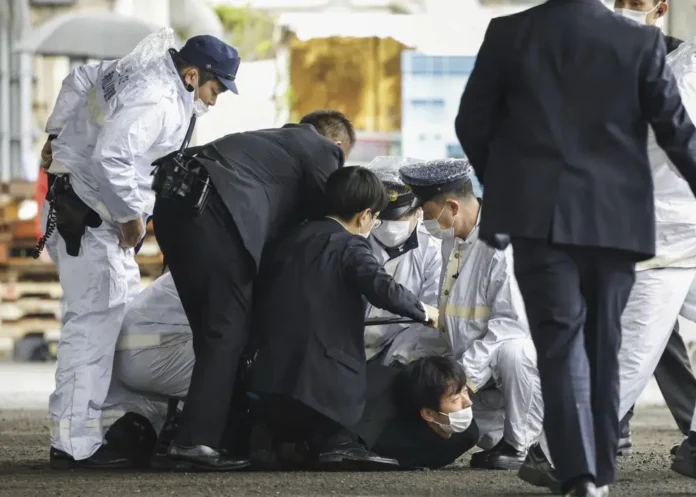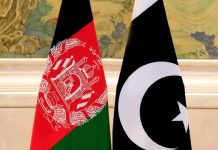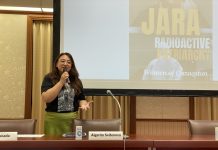WAKAYAMA, Japan (AP) – Japanese Prime Minister Fumio Kishida escaped unharmed after someone threw an explosive device in his direction during an election campaign at a fishing port in western Japan, an official said. Police pushed the suspect to the ground as bystanders screamed and fled and smoke filled the air.
No one was injured and Mr Kishida continued his campaign on Saturday, but the chaos was reminiscent of the assassination of former Prime Minister Shinzo Abe nine months ago, which is also on the trajectory of his campaign and has been a major factor in Japanese politics. Kishida was visiting Saikazaki Port in Wakayama Prefecture to support the ruling party candidate in the local elections, but just before his speech, an explosion occurred.
A suspected young man was arrested at the scene on Saturday for throwing a “suspicious object,” Chief Cabinet Secretary Hirokazu Matsuno told reporters. Matsuno declined to comment on the suspect’s motives or background, saying police are still investigating.
Television footage shows Kishida standing with his back to the crowd. His security detail suddenly points to the ground beside him, and the Prime Minister turns around in amazement. The camera pans quickly into the crowd as they run towards a young man holding a long silver tube that appears to be a man.
As they fell over the man and tried to remove the hose from their hands, a loud explosion was heard near where Kishida was standing.The crowd panicked as police violently dragged the man away.
It was not immediately clear what the explosives were or how many the suspect had, but some reports said it was a smoke grenade or pipe bomb, possibly with a delayed fuse.
No injuries were reported in the incident, which occurred on the eve of a major international forum in Japan. Matsuno said Kishida was uninjured and continued his campaign speech later on Saturday. Kishida made no mention of the bombing and returned to the Tokyo area in the evening after campaigning for another candidate in Chiba.
Matsuno said, “Elections are the foundation of democracy, and we must never allow the threat or interference of violence.
He said he had instructed the national police to do everything in their power to protect dignitaries visiting Japan for the G7 summit in May.
Abe’s assassination, which has shocked a country that boasts public safety and extremely strict gun control, occurred as he delivered an election speech in the western city of Nara.Amid nationwide protests. Police stepped up protective measures after a subsequent investigation found loopholes in Abe’s security. Security has also been tightened in Japan, as senior diplomats from some of the world’s most powerful democracies arrive at the G-7 foreign ministers’ meeting on Sunday.
Witnesses told NHK TV on Saturday that she was standing in a crowd when she saw something approaching from behind her.After a sudden loud noise, she saw her children ran away with Another witness said he saw people screaming and someone being arrested just before the explosion occurred. Saturday’s attacks come ahead of nationwide local elections, including by-elections for vacant parliamentarians, scheduled to be voted on April 23.
In Abe’s assassination, the former prime minister was shot dead with a homemade gun during his campaign speech. The suspect, Tetsuya Yamagami, has been charged with multiple crimes, including murder and violating the Firearms and Swords Act.
He told investigators he killed Prime Minister Abe, one of Japan’s most influential and divisive politicians, because of his apparent ties to religious groups disliked by the former prime minister. said. In his statements and social media posts, Mr. Yamagami said he held a grudge because his mother donated so much money to the Unification Church that bankrupted his family and ruined his life. Abe’s murder has led to the resignation of local and national police chiefs and tightened safety guidelines for political leaders and other prominent figures.
The Kishida administration hoped to draw the world’s attention to the hot spring town of Karuizawa this weekend.
The foreign ministers of Japan, the United States, the United Kingdom, France, Germany, Canada, Italy and the European Union have voiced concerns over Russia’s war in Ukraine, the rise of an increasingly belligerent China and North Korea’s series of provocative weapons tests. Focus is expected.






